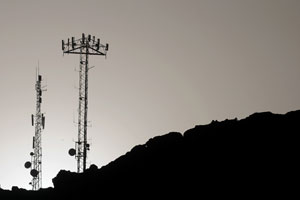Experts continue to argue about whether the data provided by mobile phone companies can reliably establish the location of a cellphone (and, by implication, its owner) at a particular time of day. When cellphones are on, they periodically “ping” a tower. Experts who use the tower’s location to track the approximate location of the phone assume that the phone pinged the nearest tower. Based upon the relative location of towers, experts draw a “coverage map” to show the area where the phone might have been during each ping.
As ExpertPages has noted in the past, the validity of coverage maps depends upon the assumption that the cellphone actually pinged the closest tower. An expert in a recent Long Island, New York trial suggested that the assumption may not be valid.
Ed Walsh Trial
Federal prosecutors charged Ed Walsh, the chair of the Suffolk County Conservative Party, with theft of government funds and wire fraud. Walsh was employed as a corrections lieutenant by the Suffolk County Sheriff’s Office and was assigned to the Suffolk County Jail. Instead of working, however, prosecutors contended that Walsh was golfing, gambling in Connecticut, or conducting Conservative Party business.
Walsh was paid a salary of $127,000 per year. He is accused of defrauding taxpayers of about $200,000 from 2011 to 2014 by collecting a salary while not showing up for work. Prosecutors contended that the Suffolk County District Attorney covered up Walsh’s malfeasance and interfered with investigations by law enforcement agents. Media reports describe Walsh as a “backdoor kingmaker” in Suffolk County politics.
The Sheriff disputed Walsh’s claim that he had “flex time” and could make up hours whenever he wanted. Walsh’s lawyers contended that the Sheriff’s testimony was politically motivated. The Sheriff, however, is also a member of the Conservative Party.
Federal prosecutors compared Walsh’s time sheets, which logged the times he claimed to be working, with records from a casino and various Long Island golf courses to prove that Walsh was not working while he was supposedly earning his salary. Prosecutors also relied on the testimony of an engineer concerning the location of Walsh’s cellphone.
Disputed Cellphone Testimony
To confirm the accuracy of other records and testimony showing that Walsh was in a casino or on a golf course when his time sheets showed he was working, prosecutors relied on the expert testimony of a cell tower engineer. By analyzing records provided by Walsh’s cellphone service provider, the engineer created maps showing the areas where Walsh could have been when his phone pinged the tower.
Since Long Island cellphone towers are located about four miles apart, a cellphone that pings the nearest tower will not usually be more than two miles from that tower. The engineer used that reasoning to narrow down Walsh’s location, placing him near the Long Island golf courses where, according to the prosecution, he was golfing rather than working.
The defense countered with its own expert, a senior manager at Cherry Biometrics, who questioned the assumption that Walsh’s phone always pinged the closest tower. According to the defense expert, cell phones can ping towers up to 21 miles from the phone’s location, even if they are not the nearest towers. He testified that phones link with towers that have the clearest signal. The tower with the clearest signal may or may not be the closest tower.
Other experts have concluded that using cell tower records to track a mobile phone user will not necessarily yield accurate results. Despite the FBI’s heavy reliance on a questionable methodology to track cellphone users, some federal judges have ruled that the FBI’s analysis of cellphone records is not a scientifically valid or reliable means of locating people. One innocent woman was wrongly convicted of murder and imprisoned for 12 years, largely on the basis of mistaken cellphone tracking evidence.
Critics have condemned cellphone tracking as junk science. Defense experts are increasingly being employed to counter the claims of prosecutors that they are able to link a defendant to a particular location by using cellphone records.
The Walsh Verdict
Some cases turn on expert evidence and others don’t. The jury in the Walsh trial deliberated for about an hour before finding Walsh guilty. In the end, the multiple witnesses who saw Walsh playing golf or gambling, and the written records of golf cart rentals and casino payouts, made the dispute about cellphone tracking a sideshow. In cases where cellphone tracking evidence is necessary to secure a conviction, however, experts are likely to play a decisive role.




